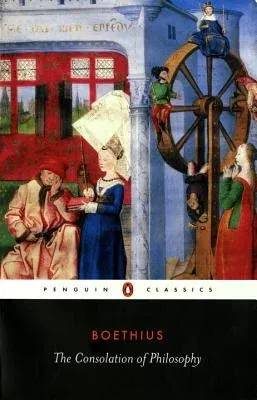Ancius Boethius
(Author)The Consolation of Philosophy (Revised)Paperback - Revised, 1 May 2000

Qty
1
Turbo
Ships in 2 - 3 days
In Stock
Free Delivery
Cash on Delivery
15 Days
Free Returns
Secure Checkout

Reading Age
Ages: 18
Grade Levels
13
Part of Series
Penguin Classics
Print Length
192 pages
Language
English
Publisher
Penguin Group
Date Published
1 May 2000
ISBN-10
0140447806
ISBN-13
9780140447804
Description
Product Details
Audience:
Ages: 18
Author:
Book Edition:
Revised
Book Format:
Paperback
Country of Origin:
GB
Date Published:
1 May 2000
Dimensions:
19.61 x
12.78 x
1.27 cm
Educational Level:
Grade Levels: 13
Genre:
Medieval (500-1453) Studies
ISBN-10:
0140447806
ISBN-13:
9780140447804
Language:
English
Location:
London, England
Pages:
192
Publisher:
Series:
Weight:
136.08 gm